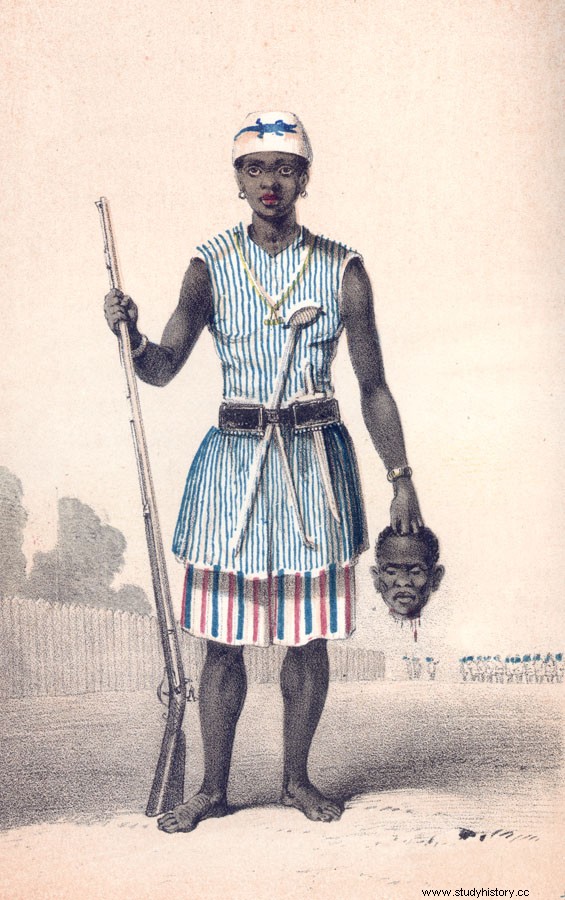Seh-Dong-Hong-Beh (19th century) led an all-female army nicknamed the Amazons of Dahomey (now Benin). She led up to six thousand women into battle, storming a fortress.
An army of six thousand women
 Extremely little is known about the life of Seh-Dong-Hong-Beh, whose name means " God speaks the Truth”. She lives in the Kingdom of Dahomey (southwest of present-day Benin), in the 19th century; at a time when France is extending its colonial empire in Africa. A slave kingdom enriched by the slave trade, the Kingdom of Dahomey was in conflict with neighboring peoples, in particular with the Egbas who founded the city of Abeokuta (now Nigeria) as a refuge.
Extremely little is known about the life of Seh-Dong-Hong-Beh, whose name means " God speaks the Truth”. She lives in the Kingdom of Dahomey (southwest of present-day Benin), in the 19th century; at a time when France is extending its colonial empire in Africa. A slave kingdom enriched by the slave trade, the Kingdom of Dahomey was in conflict with neighboring peoples, in particular with the Egbas who founded the city of Abeokuta (now Nigeria) as a refuge.
Since the beginning of the 18th century, the Kingdom of Dahomey has had, integrated into its army corps, a unit of women fighters. Founded between 1708 and 1711 by Queen Tasi Hangbè, the female warrior corps fought valiantly in wars with enemy kingdoms. They are called Minos , meaning “Our mothers” in Fongbe, the official language of the Kingdom of Dahomey. It was the Europeans who, discovering this regiment of warriors, nicknamed them Amazons, in reference to the people of female warriors in Greek mythology.
In 1851, Seh-Dong-Hong-Beh was the chief of the regiment of Minos which, with 6,000 recruits, represents a third of the army. She leads her all-female army, armed with spears, arrows, and swords, in an assault on the Egba Fortress of Abeokuta. Many will perish in the fight.
Subsequently, the Minos stood up, alongside the other regiments of the regular army of Dahomey, to the advance of the French colonists. The body of the Amazons is dissolved when Dahomey becomes part of French West Africa.
